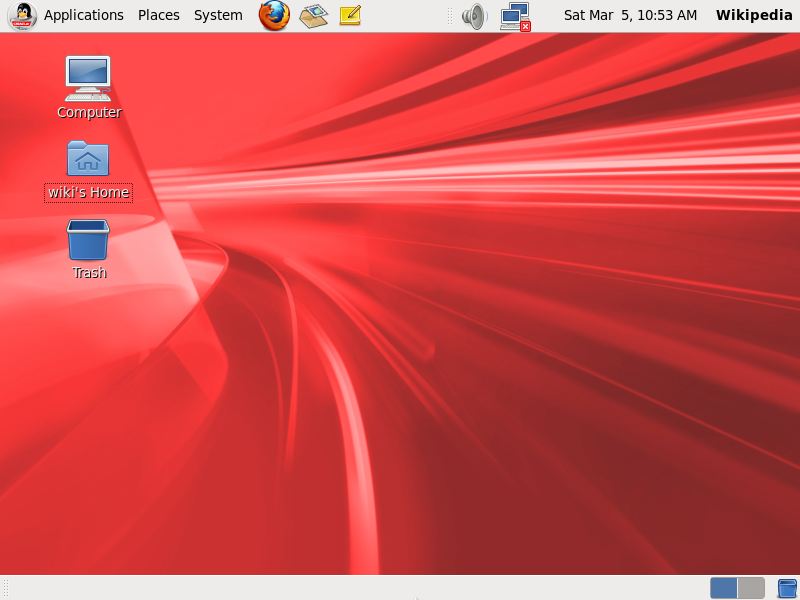04.27.16
Posted in Antitrust, Deception, GNU/Linux, Google, Java, Microsoft at 7:47 pm by Dr. Roy Schestowitz
English/Original
Article as ODF
Publicado por Antitrust, Deception, GNU/Linux, Google, Java, Microsoft at 7:13 am por el Dr. Roy Schestowitz

Credit: unknown (Twitter)
Summary: Otro recordatorio de la realidad que Microsoft está muy activo en el frente E.E.E., not no sólo contra GNU/Linux pero también Android y Java
NO es un secreto que Microsoft está tratándo de obstaculizar el desarrollo de Android o dominárlo completamente, no simplemente extorsiónandolo con patentes de software o ejerciéndo influencia/control usando patentes de software. Entonces también hay el aspecto antimonopolio; fue Microsoft y sus proxies/grupos frontales que impulsaron a los que impulsaron a los políticos Europeos a ir detrás de las aventuras Linux de Google (hemos cubierto estos hechos muchas veces por casi una década).
“Entonces también hay el aspecto antimonopolio; fue Microsoft y sus proxies/grupos frontales que impulsaron a los que impulsaron a los políticos Europeos a ir detrás de las aventuras Linux de Google (hemos cubierto estos hechos muchas veces por casi una década).”
Ahora mismo encontramos a Jason Perlow [1, 2, 3, 4, 5] (un empleado de Microsoft que habitualmente ataca a los rivales de Microsoft) haciéndo el anti-Java y anti-Android berrinche en ZDNet, quién estupidamente emplea empleados de Microsoft como periodistas. La última de Jason Perlow tiene carnada en el títular, “La crisis existencial de Android: ¿El porqué Java necesita morir en devices móbiles?” (ataque contra ambos Android y Java; dos pajaros, una piedra).
Cuánt típico es todo esto. Agenda disfrazada de ‘noticias’. Ese es el modus operandi y el modelo de negocios de CBS, quien es dueño de ZDNet. Para entender mejor el porque de Perlow desearíá basurear/hablar mal de ambos Java y Android, consideren el caso de RoboVM, e cual Microsoft acaba de matar usando el clásico E.E.E método. El último nuevo artículo acerca del asesinato de RoboVM por parte de Microsoft de James Darvell (y por extensión dañar a Android y a Linux) va como sigue:
Microsoft recientemente hizo un gran ruido alrededor de su amor y apoyo de la comunidad Open Source (especialmente Linux), pero al mismo tiempo se trata de hacer medidas concretas para mejorar su apoyo a los proyectos de software libre, sus motivos no puede ser totalmente altruista. Microsoft sigue financiando ataques legales contra los proyectos de código abierto en varios frentes, y se ha aplastado proyectos de código abierto cuando conviene a la empresa.
Tal es el caso de RoboVM, un compilador de Java-a-móvil que apoya el desarrollo móvil de plataforma cruzada.
RoboVM fue originalmente un proyecto de código abierto, aunque eso cambió después de que la empresa matriz fue adquirida por Xamarin en octubre de 2015. Xamarin tenía varios productos similares que apoyan el desarrollo multiplataforma utilizando diferentes lenguajes de programación. Naturalmente, Xamarin vio RoboVM como una adición adecuada a su establo.
Poco después de la adquisición, se hizo un anuncio en el sentido de que el modelo de desarrollo de código abierto “no estaba funcionando” para el equipo RoboVM. El proyecto se cerró, y derechos de licencia se incrementaron para que coincida con las otras herramientas en la alineación de Xamarin.
A principios de este año, Microsoft adquirió Xamarin, y mientras se está promocionando con orgullo la mayoría de conjunto de herramientas de Xamarin, parece que no hay lugar para RoboVM en los planes de desarrollo multi-plataforma de Microsoft. La semana pasada, el equipo RoboVM anunció que el proyecto sería cerrada.
Actualmente, RoboVM no dijo esto después de su compra pero poco tiempo antes de ella, probablemente cuando negociaba la toma de control por parte de Microsoft todavía tuvo lugar [1, 2, 3]. Darvell del Linux Journal continua:
Sin embargo, hay algunos que dirán que Microsoft no le gusta Java. Microsoft consiguió sus dedos quemados en 1997, cuando Sun demandó a Microsoft por su intento de apropiación de Java. En aquel entonces, Java se convertirá en el “lenguaje de Internet”, y trayendo el apoyo applet de Java en Internet Explorer era un objetivo importante. Al estilo de Microsoft, Java VM de Windows admite sólo parcialmente los Java estándar lo que es más, añadido funciones publicados que no formaban parte de la norma oficial.
El objetivo era crear una situación en código que se ejecutaba en una máquina virtual de Microsoft no se presentaría en cualquier otra plataforma. Secuestrando el estándar de Java, Microsoft planea capturar base de usuarios de Sun y dictar el futuro de Java. Por supuesto, ese plan resultó en un desastre caro, lo que explica la actitud tibia de la compañía a Java desde entonces.
Nos preocupa que el próximo E.E.E. de Microsoft que haya pueda ser Canonical. Entonces allí esta la preocupación acerca de la Linux Foundation, la cual como Canonical al presente tiene dinero de Microsoft money en su mesa. Hablando de lo cual, la propaganda de Microsoft está siendo amplificada por la Linux Foundation incluso dos veces el mismo dia (ayer), levantando dudas como, ¿para quién están trabajando estos dias? Despues de permitir antiguo personal de Microsoft dentro de ellas, y haber estado recibiéndo dinero de Microsoft, el poder del dinero los amenaza también.
“No sobrestime la malicia de Microsoft. Está todavía dirigida por la misma gente.”
Microsoft tiene una historia de usar la corruptible influencia del dinero para demoler a sus competidores, e.g. al contratar a sus empleados, pagar por cláusulas de no competición, hacerse cargo de ellas sólo para desmántelarlas. No sobrestime la malicia de Microsoft. Está todavía dirigida por la misma gente.
“Infestaciónes de Linux están siéndo descubiertas en muchos de nuestros grandes cuentas como parte de los comprómisos de escalación.”
–Microsoft Confidential
Permalink
 Send this to a friend
Send this to a friend
04.26.16
Posted in Antitrust, Deception, GNU/Linux, Google, Java, Microsoft at 7:13 am by Dr. Roy Schestowitz

Credit: unknown (Twitter)
Summary: Another reminder of the fact that Microsoft is very active on the E.E.E. front, not just against GNU/Linux but also Android and Java
IT IS no secret that Microsoft is trying to derail Android development or take over it, not just tax it using software patents or exerting influence/control using software patents. Then there’s the antitrust aspect; it was Microsoft and its proxies/front groups that pushed European politicians to go after Google’s Linux endeavours (we have covered this in dozens of posts going half a decade back).
“Then there’s the antitrust aspect; it was Microsoft and its proxies/front groups that pushed European politicians to go after Google’s Linux endeavours (we have covered this in dozens of posts going half a decade back).”Right now we find Microsoft’s Jason Perlow [1, 2, 3, 4, 5] (a Microsoft employee who habitually attacks Microsoft’s rivals) doing the anti-Java and anti-Android spiel at ZDNet, which foolishly employs Microsoft staff as journalists. Perlow’s latest piece has a bait headline, “Android’s existential crisis: Why Java needs to die on mobile devices” (attack on both Android and Java; two birds, one stone).
All we can say is, how typical. Agenda as ‘news’. That’s the modus operandi and the business model of CBS, which owns ZDNet.
To better understand why Perlow would wish to trash-talk/badmouth both Java and Android, consider the case of RoboVM, which Microsoft has just killed using its classic E.E.E. method. James Darvell’s good new article about Microsoft’s assassination of RoboVM (and by extension harm to Android and to Linux) goes as follows:
Microsoft recently made a big noise about its love and support of the Open Source community (especially Linux), but while it’s making concrete steps toward improving its support for FOSS projects, its motives may not be entirely altruistic. Microsoft continues to fund legal attacks against open-source projects on multiple fronts, and it has crushed open-source projects when it suits the company.
Such is the case with RoboVM, a Java-to-mobile compiler that supported cross-platform mobile development.
RoboVM originally was an open-source project, although that changed after the parent company was acquired by Xamarin in October 2015. Xamarin had several similar products that support cross-platform development using different programming languages. Naturally, Xamarin saw RoboVM as a suitable addition to its stable.
Shortly after the acquisition, an announcement was made to the effect that the open-source development model “wasn’t working out” for the RoboVM team. The project was closed, and licensing fees were increased to match the other tools in Xamarin’s lineup.
Earlier this year, Microsoft acquired Xamarin, and while it’s proudly touting the majority of Xamarin’s suite of tools, it seems there’s no place for RoboVM in Microsoft’s cross-platform development plans. Last week, the RoboVM team announced that the project would be shut down.
Actually, RoboVM didn’t say this after the buyout but shortly before it, probably when negotiation with Microsoft’s outpost still took place [1, 2, 3]. Darvell of Linux Journal continues:
But, there are some who will say that Microsoft just doesn’t like Java. Microsoft did get its fingers burned back in 1997 when Sun sued Microsoft over its attempt to appropriate Java. Back then, Java was set to become the “language of the Internet”, and bringing Java applet support to Internet Explorer was an important goal. In true Microsoft fashion, the Windows Java VM only partially supported the published Java standard—what’s more, it added features that were not a part of the official standard.
The goal was to create a situation where code that ran on a Microsoft VM would not run on any other platform. By hijacking the Java standard, Microsoft planned to capture Sun’s user base and dictate the future of Java. Of course, that plan resulted in an expensive debacle, which explains the company’s lukewarm attitude to Java ever since.
We worry that next on Microsoft's E.E.E. queue there might be Canonical. Then there’s concern about the Linux Foundation, which just like Canonical currently has Microsoft money on its table. Speaking of which, Microsoft propaganda is being amplified by the Linux Foundation even twice in one day (yesterday), raising questions such as, who are they working for these days? After letting former Microsoft staff in, and having received money from Microsoft, the power of money threatens them too.
“Don’t underestimate Microsoft’s malice. It’s still run by virtually the same people.”Microsoft has a history of using the corrupting influence of money to demolish competitors, e.g. by poaching employees, paying for non-compete clauses, taking over only to dismantle and so on. Don’t underestimate Microsoft’s malice. It’s still run by virtually the same people. █
“Linux infestations are being uncovered in many of our large accounts as part of the escalation engagements.”
–Microsoft Confidential
Permalink
 Send this to a friend
Send this to a friend
04.16.16
Posted in Antitrust, GNU/Linux, Java, Microsoft, Mono at 3:05 am by Dr. Roy Schestowitz
Microsoft a serial killer of FOSS

Summary: Microsoft has just killed yet another FOSS project (using money to shut down competitors) — one that was helping Android and Java
THE headline “Embrace, extend – and kill. Microsoft discontinues RoboVM” says it all really. Several people in our IRC channels noticed this original story (from the original statement) rather quickly and later on in the day some people told me about it privately, so it obviously wasn’t overlooked at all.
“Nice,” Lirodon wrote in the afternoon, “and now Microsoft has killed RoboVM dead. It was already dead when they became non-free.”
“Microsoft,” MinceR responded, “where projects go to die [...] just like they killed entire video game developer companies (Terminal Reality and Ensemble Studios)” (we covered this years ago).
Microsoft is just the same old evil company, there is no ‘ new’ Microsoft. Microsoft will try this against GNU/Linux if it can. It’s its classic modus operandi, but taking on a project as big as these (to “extinguish”) is a monumental task.
What Techrights wrote about RoboVM when it was first “embraced” [1, 2, 3] turns out to be true. We foresaw exactly what Microsoft would do about RoboVM once it’s payday (yet again!) for Miguel de Icaza.
Some people still wonder, what exactly happened to RoboVM? Here it is in their own words: “Over the past few weeks, we’ve been working with the teams at Xamarin and Microsoft to assess the technology and business conditions of RoboVM to determine the path forward for the products. After looking at the complete landscape for mobile development with Java, the decision has been made to wind down development of RoboVM.”
After they had made it proprietary (shortly before Xamarin stepped in formally), essentially stabbing the whole community in the back, the Microsoft people (all of them are Microsoft staff now) did this:
For any fools out there who still think Microsoft doesn’t do E.E.E. against FOSS, here we go again. What would it take to wake people up? How many more companies need to die? How could RoboVM not know that Xamarin was an evil proxy of Microsoft? It was common knowledge as it wasn’t hard to see where Xamarin’s money had come from (Microsoft veterans).
Microsoft is now essentially shutting down another pillar of Java, so this is classic E.E.E. via Xamarin. As one person put it to us, “and today Microsoft ordered RoboVM to wind down operation” (linking to the original announcement).
A lot of the utter rubbish about Microsoft “loving Linux” is a villainous lie. It’s the best lie money can buy as it’s clear that Microsoft is still very aggressive; it hates GNU/Linux, it hates Android, and it hates Java. Don’t let the Microsoft-funded media fool you (Microsoft Peter, for instance, moved from the UK to the US to write for Condé Nast, which is paid by Microsoft). Microsoft basically buys articles from various large media networks; it pays networks to tell us that Microsoft has changed, but nothing is changing, it’s only escalating.
The above, says Fernando Cassia, “reminds me of VirtualPC, which was a product of Innotek Gmbh and offerend Windows virtualization under OS/2 hosts….”
He then told me, “guess which product they dropped after being acquired by Microsoft? Yes, Virtual PC for IBM OS/2 :-/”
He further emphasised that “everything Microsoft does is about leveraging its cash cow to hurt competitors or whatever it sees as a menace” and “the war on Java started ten years ago… “Operation Sunblock” never really stopped” (here is the article about “Operation Sunblock”)
“20 years ago,” he added a few hours later, “boy how time flew [...] “+options available…including tools that will help you PORT TO XAMARIN” //Competitor eliminated.Mission accomplished”
When will be the next antitrust probe against Microsoft bribery, racketeering, blackmail, and extortion? Did it get enough lobbyists in all the right places in order to shift any such focus to Google? Remember that Microsoft is still run by the same thugs (only the CEO changed) and they want Android and Linux to be next in the E.E.E. pipeline. Microsoft loves nothing but itself and its own monopoly of lock-in and back doors. New charm offensives try to lull us into sleep and inaction (no defensive/reactionary statements from the community).
As one person told me yesterday: “Remember Microsoft’s charm offensive with Nokia? We all know very well how that ended and what happened to MeeGo & Meltemi.”
We wrote a lot about what Microsoft did to Nokia. How many more Linux and FOSS backers need to die (out of work) before the media acknowledges that Microsoft is a liar and an assassin? █
Permalink
 Send this to a friend
Send this to a friend
07.16.15
Posted in Free/Libre Software, Java, Mono, Oracle, Patents at 9:09 am by Dr. Roy Schestowitz
Summary: The efforts to empower Microsoft’s APIs, even if by lies and strongarming
THE MEDIA, including Microsoft-connected sites, is openwashing Visual Studio right now [1, 2]. A mixture of misleading headlines and half-truths are the means. We recently showed a lot of Visual Studio openwashing [1, 2, 3]. This in itself is disturbing and it is part of a trend to watch out for.
Will Hill points out that “Something odd is happening between Oracle and Xamarin. Oracle is strong arming customers into “the cloud” with license audit threats. What’s really weird is psycho babble about Xamarin being some sort of force in mobile and that silly cloud stuff with millions of developers. As far as I remembered Xamarin was a nasty little Microsoft shell designed to keep Mono around after Novell collapsed (2).
“I’ve asked Christine Hall on G+ what she knows about Xamarin and Oracle. Oracle pushing their customers onto Mono sounds like a suicide pact to me.
“Maybe they were dumb enough to push C# tools onto their database used [sic].”
–Will HillRemember that Xamarin has been one of Microsoft’s tools for openwashing both .NET and Visual Studio.
“No response from Christine Hall yet,” Hill added today. “The name Xamarin left an unpleasant buzz in my head, so I did a Techrights search and remembered who they were. I thought, “that can’t be those Mono monkeys, they don’t do that.” Then I dug to the stock fraud site and, yep, that’s who they are talking about. There’s still room for it to be a typo, but I’d laugh and laugh if Oracle were to saddle their “cloud” with C# or Mono via Xamarin.
“Maybe they were dumb enough to push C# tools onto their database used [sic]. I’ve seen it in medical software because one of the vendors is a terminal Microsoft used.” [sic]
We shall update this post with any additional information or clarification. █
Permalink
 Send this to a friend
Send this to a friend
01.14.15
Posted in Courtroom, Google, Java, Oracle at 3:35 pm by Dr. Roy Schestowitz
Nontechnical people in black gowns and white wigs to decide on huge things

Summary: The US Supreme Court may soon start dealing with a legal assault on Android and in the process hopefully end the notion of copyright on APIs
SOFTWARE bully Oracle, which pretty much put to rest all of Sun’s Free software except few successful items (e.g. MySQL and VirtualBox, but not OpenOffice) and now attacks Java’s integrity by preventing deviations using abuse/misuse of copyright law, is still at it. The Court of Appeals for the Federal Circuit (CAFC), one of the most ridiculous and insidious courts in the world (both corrupt and biased), let Oracle have its way against Android, essentially sending a warning shot not just to those inspired by Java but everyone who reuses names of/in interfaces. This is dangerous and it is heading for judgment by the highest court, SCOTUS.
“Just like software patents, here we have something that both Free software and proprietary software developers should be united against.”According to some articles about SCOTUS, such as this report from Steven J. Vaughan-Nichols, the case that can affect so many programmers is potentially to be decided by the same court that recently defanged a lot of software patents (much to the regrets of the USPTO). Vaughan-Nichols writes: “Google has had enough of its long-running legal battle with Oracle over whether application programming interfaces (API)s can be copyrighted. The search giant has asked the Supreme Court of the United States (SCOTUS) to bypass further battles in lower courts and address the API copyright issue once and for all. SCOTUS, in return, is soliciting the Obama administration for its view of the case before moving forward.”
Well, it is proceeding pretty much as expected. The British media put it like this:
The US Supreme Court hasn’t decided whether it will hear arguments in the long-running dispute between Google and Oracle over Java copyrights, and it has asked the Obama administration to weigh in before it makes up its mind.
An expert in legal matters of the Free software world recently [1] named this case one of the top 10 “FOSS legal developments of 2014″. It is probably one of the top “legal developments of 2014″ if not one of the top “technical legal developments of 2014″, especially when it comes to programming. The case affects not only FOSS. Just like software patents, here we have something that both Free software and proprietary software developers should be united against. █
Related/contextual items from the news:
-
The litigation surrounding Android continued this year, with significant developments in the patent litigation between Apple Computer, Inc. (Apple) and Samsung Electronics, Inc. (Samsung) and the copyright litigation over the Java APIs between Oracle Corporation (Oracle) and Google, Inc. (Google). Apple and Samsung have agreed to end patent disputes in nine countries, but they will continue the litigation in the US. As I stated last year, the Rockstar Consortium was a wild card in this dispute. However, the Rockstar Consortium settled its litigation with Google this year and sold off its patents, so it will no longer be a risk to the Android ecosystem.
The copyright litigation regarding the copyrightability of the Java APIs was brought back to life by the Court of Appeals for the Federal Circuit (CAFC) decision which overturned the District Court decision. The District Court had found that Google was not liable for copyright infringement for its admitted copying of the Java APIs: the court found that the Java APIs were either not copyrightable or their use by Google was protected by various defenses to copyright. The CAFC overturned both the decision and the analysis and remanded the case to the District Court for a review of the fair use defense raised by Google. Subsequently, Google filed an appeal to the Supreme Court. The impact of a finding that Google was liable for copyright infringement in this case would have a dramatic effect on Android and, depending on the reasoning, would have a ripple effect across the interpretation of the scope of the “copyleft” terms of the GPL family of licenses which use APIs.
Permalink
 Send this to a friend
Send this to a friend
12.12.13
Posted in GNU/Linux, Java, Oracle, Red Hat, Servers at 10:08 am by Dr. Roy Schestowitz
Oracle: the ‘fake’ red

Summary: Red Hat is increasingly worried about Oracle, which seems to be doing nothing but leech and close down FOSS development (with Oracle-only features)
Red Hat Enterprise Linux 7 is just around the corner [1], having reached “beta” [2-4] and made MariaDB its default database [5]. This new release [6] does some cloudwashing [7,8] as if surveillance-friendly computing (or Fog Computing) is somehow a selling point now.
What’s very curious about this announcement is the reinforcement of known policy that excludes Oracle’s MySQL. Oracle Linux 6.5 has also just been released [9,10] and Oracle’s treatment of it is dangerously selfish. It’s not just about MySQL, RHEL, and LibreOffice; there’s also the Java angle [11] now that Red Hat has Ceylon. Oracle is trying to ‘steal’ customers from RHEL and it has been trying to do this (without much success) for years, trying to appeal to GNU/Linux administrators [12] with increasingly-long (and expensive) support contracts [13].
Oracle has just joined the OpenStack Foundation [14], but the attempts to describe Oracle as “open” fail miserably because Oracle is actively suing FOSS projects, abandoning some (LibreOffice is thankfully evolving without Oracle [15,16]), and liaising with Microsoft to sell proprietary products.
Those who want to support GNU/Linux development would be better off supporting Red Hat or projects like Debian and CentOS. Oracle’s clone is not like any other clone; it’s more like a trap. █
Related/contextual items from the news:
-
-
-
-
At long last, Red Hat’s flagship Linux platform now has a next-generation milestone, including new performance, storage and virtualization capabilities.
-
Red Hat’s newest enterprise Linux takes one giant step forward to its release and shifts from MySQL to MariaDB for its database management system needs.
-
-
Best known for its Linux distribution, Red Hat’s introduction of OpenShift Enterprise 2 shows that the open-source giant has its eyes on the cloud.
-
The next version of Red Hat’s (RHT) OpenShift on-premise private PaaS offering is about to hit the proverbial shelves. Ashesh Badani, Red Hat’s general manager of Cloud and OpenShift, unveiled OpenShift Enterprise 2, which was designed to provide customers with the ability to increase the speed, efficiency and scalability of their IT service delivery.
-
-
-
As the Linux market gets crowded with more and more players, the control of standards becomes important; that’s how one gains marketshare and outwits rivals.
-
-
-
-
-
Upcoming LibreOffice 4.2 will start to offer this feature in stealth mode, so to say. The Options dialog’s “Security – Options…” page contains a new “Block any links from documents not among the trusted locations” check box, using the list of trusted locations managed on the “Security – Macro Security… – Trusted Sources” page. When enabled, a matching document’s references to any external entities are not resolved. This includes resources like linked graphics, movies, and sounds, references to external settings like color and gradient tables, and ODF’s “auto-reload” feature.
Permalink
 Send this to a friend
Send this to a friend
11.15.13
Posted in Free/Libre Software, Java, Office Suites, OpenDocument, OpenOffice, Oracle at 4:45 am by Dr. Roy Schestowitz
Larry Ellison: “If an Open Source Product Gets Good Enough, We'll Simply Take It.”
Larry Ellison: “We Have to Exploit Open Source.”

Photo from Oracle Corporate Communications
Summary: Oracle’s latest casualty is commercial support for Glassfish JEE Server, but replacements for Java continue to multiply
Oracle has hardly been friendly towards FOSS, and that’s putting it very politely. Oracle actively attacked some FOSS (like Android) and shelved some important FOSS projects like OpenOffice.org, eventually turning it into Apache OpenOffice and then turning its back on it. In addition, Oracle’s abandonment of Java products seems evident [1] (Glassfish JEE Server this time), leaving the likes of Red Hat to bridge the gap [2], joining the likes of Google with Dalvik. Oracle has been a disappointing steward of Java and Java-based projects, so when it comes to branching off in different directions, that’s just fine. As for MySQL, MariaDB — like LibreOffice — helps keep it somewhat safe from Oracle’s neglect [3] (a lot of applications out there still depend on MySQL [4,5]) and there are some big new storage players [6,7] which jeopardise Oracle’s core business (MySQL was an Oracle rival, but so was Postgres, well before Apache Cassandra and and Apache Hadoop).
It remains hard to explain why Oracle turned its back on OpenOffice.org like this. Back in the days Oracle put its weight behind ODF and even opposed OOXML, which is a growing problem [8]. Now we have two options [9], both the IBM-backed [10] Apache OpenOffice and LibreOffice, which is mostly driven by users’ needs (see [11] from Charles-H. Schulz), has frequent releases [12], and is focused on innovation [13], not profit. There are smaller players in this lucrative area of office suites, both Free/libre [14] and proprietary [15], but none is as important as what used to be StarOffice. Nothing other than OpenOffice.org could really challenge and replace Microsoft Office in businesses (from proprietary lock-in to freedom and standards).
The important thing we can learn from all this is that when software is free in the licensing sense it is extremely difficult for aggressors like Oracle to kill. The licence of the code protects the software; developers can take the code and continue the work elsewhere, as long as there is enough demand to drive development. There is another lesson to be learned here. For a business, it is a lot less risky to choose Free/libre software as chances of discontinuation are fairly low, especially when the software is well-established (like Linux and Apache). █
Related/contextual items from the news:
-
-
After more than three years of development, Red Hat has released version 1.0.0 of Ceylon, its homebrewed, open-source programming language that’s designed to be a replacement for Java.
Early on, Ceylon was billed as a “Java killer” by some, but lead developer Gavin King has denied that doing away with Oracle’s platform was ever his intent. In fact, even the earliest builds of Ceylon produced code that ran on the Java Virtual Machine (JVM).
Instead, King sought to create a new language that could run alongside Java but would be based on more modern class libraries and would have a syntax more amenable to defining user interfaces – something King believes there is “no good way” to do in Java.
In its current form, King describes Ceylon as a “cross-platform” language. The 1.0.0 release, announced at the Devoxx conference in Antwerp, Belgium on Tuesday, includes compilers that can output either Java bytecode or JavaScript.
That allows the same Ceylon source modules to run on either the JVM or a JavaScript execution environment such as Node.js, interchangeably. Or, a Ceylon program can be written to target only one of Java or JavaScript, in which case it can interoperate with native code written in that language.
-
The news came out at the Extremely Large Databases (XLDB) conference in Stanford, California on Wednesday, one month after El Reg reported that Google had assigned one of its engineers to the MariaDB Foundation. News of the swap was not an official announcement by Google, it came out during a presentation by Google senior systems engineer Jeremy Cole on the general state of the MySQL ecosystem.
-
-
-
Apache has just released Apache Cassandra v2.0, the latest version of its popular highly-scalable, big data distributed database.
-
The Palo Alto, California-based company is a Yahoo Inc spin-off founded in 2011 by a team of software engineers working on Yahoo’s Apache Hadoop implementation.
-
Twelve (TWELVE!!!) years ago I asked OpenOffice users “Are you advocating OO correctly”. Six years ago I said the same things in a different format. A couple of weeks ago, I came across a perfect proof that that kind of advocacy IS right, but so far has been never practiced enough.
-
Apache OpenOffice and LibreOffice are the modern descendants of OpenOffice.org. For the last few years, almost all Linux distributions have included LibreOffice as their default office suite. However, in the past eighteen months, OpenOffice has reappeared, newly organized into an Apache project, and free software users now have the choice of two full-featured suites instead of one.
-
The latest, and most significant, enabler of enterprise use of Apache OpenOffice is our IBM Support for Apache OpenOffice offering. Although individual end-users and even small businesses can easily deploy Apache OpenOffice on their own (75 million downloads testifies to that), larger enterprises with more complicated and demanding needs benefit from the kind of expertise that IBM can provide. So I’m glad to see this offering available to fill out the ecosystem, so everyone can use and be successful with Apache OpenOffice, from individual university students, to small non-profits, to large international corporations.
-
A few weeks ago we started to have a quite interesting discussion on the LibreOffice project’s marketing mailing list on how to engage users in our community. Readers of Moved by Freedom – Powered by Standards may remember that during the LibreOffice Conference of 2012 in Berlin, the marketing strategy had already defined that the mission of marketing for the LibreOffice project was not to market a product but rather to grow the size of the community of contributors, improve the communications and raise the brand awareness of LibreOffice. This strategy was clearly reaffirmed during our second marketing workshop in Milano in September 2013.
-
LibreOffice was bumped today for version 4.2.0 Alpha 1, the next major update to the popular open-source office suite.
-
… and so does pesky market research. The IT bubble has been spreading the word about this Forrester report and as you can imagine it got many of us wondering what it really means. Well it got me wondered about a few things too, but perhaps not for the same reasons others twisted their heads around..
-
-
It certainly is not intended for people who, like me, appreciated the combination of simplicity and power that was the hallmark of previous versions of Pages. I realize that it must be hard to maintain the right balance between simplicity and power when you try to add more features, more customizability, and so on. But Apple’s engineers appear to have chosen to keep the emphasis on “simplicity” at the expense of “power”. They have not just neglected to add features to bring the feature set of the application closer to that of a word processor like Microsoft Word. They have actually removed many features for no apparent reason other than to bring the application in line with its iOS counterpart, which is, inevitably, much less powerful.
[...]
I guess that, in an era of mobile, touch-based computing, it’s becoming increasingly difficult for Apple engineers to understand that document writers spend most of their days with their hands on an actual keyboard, and providing easy access to functionality via the keyboard is particularly important for them.
Permalink
 Send this to a friend
Send this to a friend
07.30.13
Posted in Antitrust, GNU/Linux, Java, Microsoft at 12:44 pm by Dr. Roy Schestowitz

Summary: Microsoft wants to befriend its prey, but antitrust complaints against Microsoft helps remind the prey of what it is
Microsoft has got unbelievable nerve trying to devour Java and GNU/Linux (see prior coverage in [1, 2]), which it files antitrust complaints against.
The real antitrust abuser is Microsoft, not Free software, where free means freedom. Here is an update about the UEFI antitrust complaint, which says progress is being made because “The European Commission is waiting for Microsoft’s comments on a complaint against secure boot in Windows 8 before it takes its next step, according to the lawyer who filed the complaint.
“The real antitrust abuser is Microsoft, not Free software, where free means freedom.”“José Maria Lancho, a Spanish lawyer who filed the plaint in March on behalf of 8,000 computer users who are part of Hispalinux, told iTWire that once the Commission heard back from Microsoft, the next step would be to review the company’s comments and then decide about the preliminary injunction request which he had lodged.”
As covered here before, there are additional reasons to worry about UEFI, patents included [1, 2], but the matter of fact is, there is an inherent incompatibility here with the concept of freedom, unless of course the user manages the keys on his/her computer hardware.
For Microsoft, UEFI is a victory on two levels; one is the fact that GNU and Linux become harder to explore and the other is that people become accustomed to having no freedom with devices they buy (Xbox One takes that further with the application layer and surveillance). █
Permalink
 Send this to a friend
Send this to a friend
« Previous entries Next Page » Next Page »























 Content is available under CC-BY-SA
Content is available under CC-BY-SA